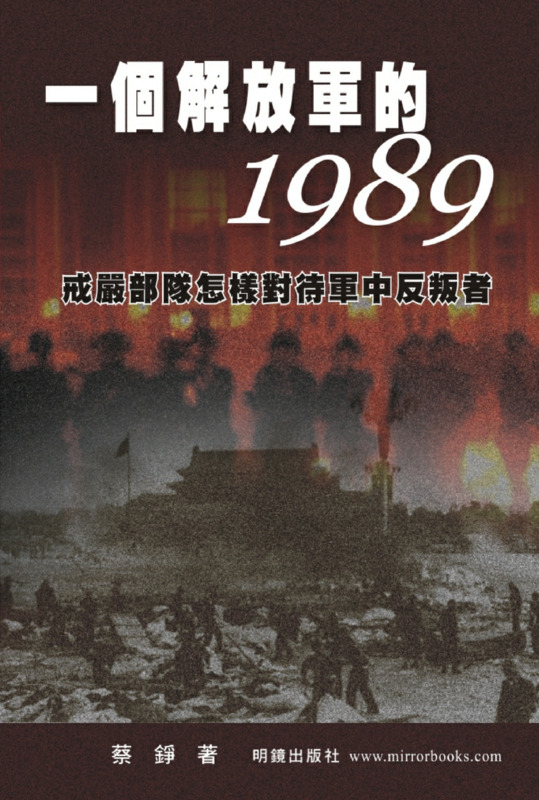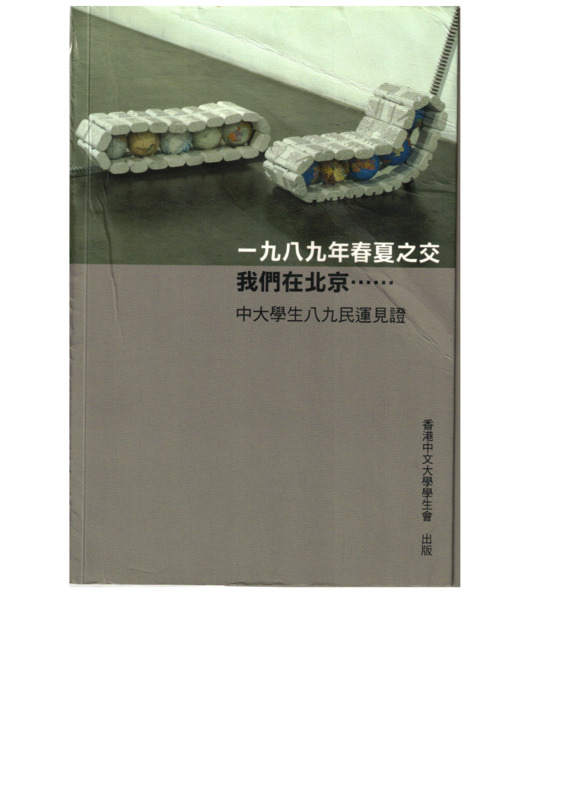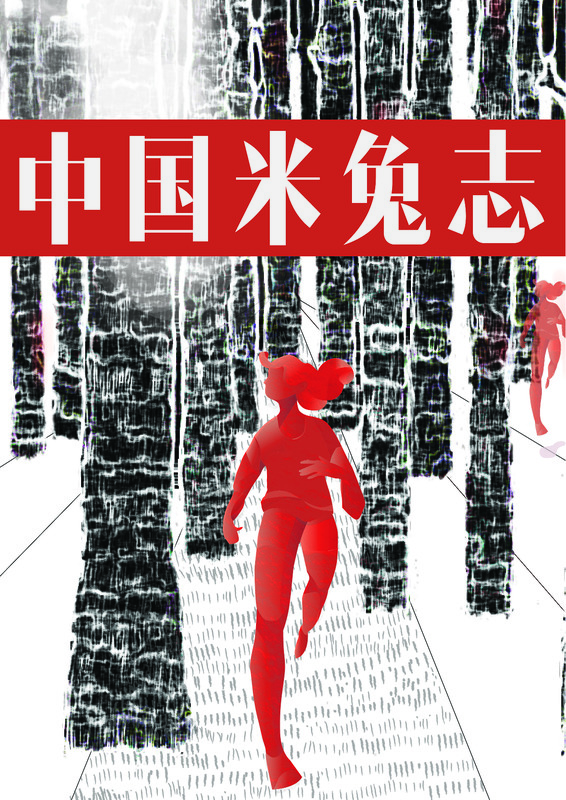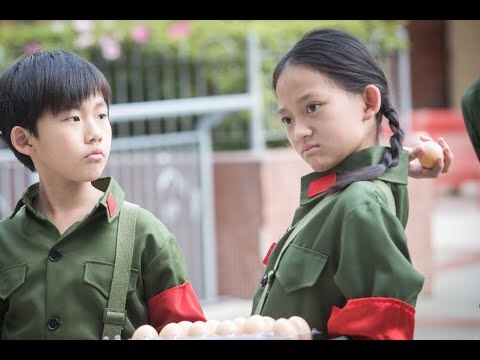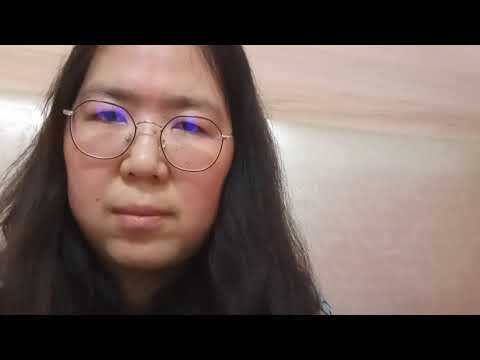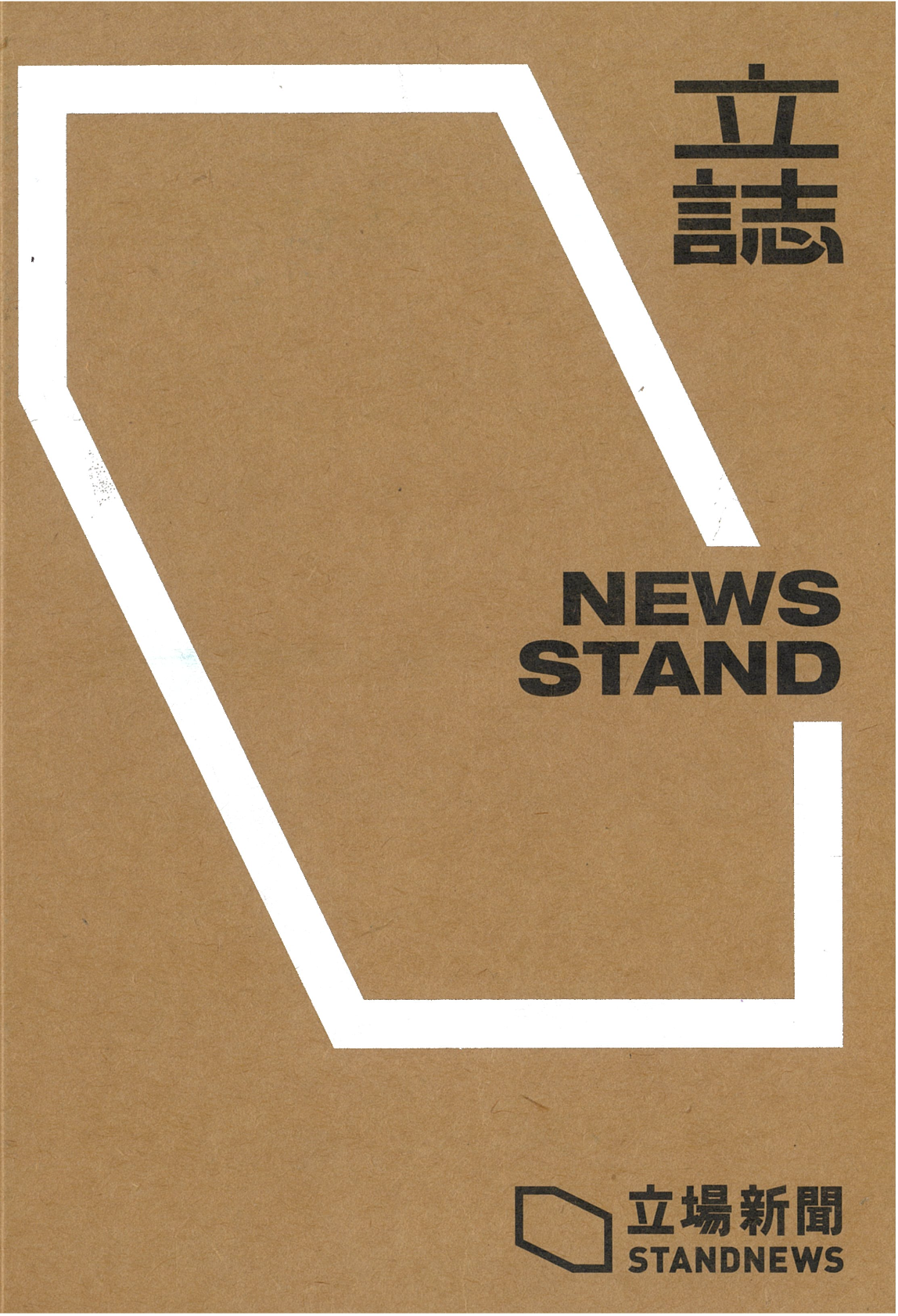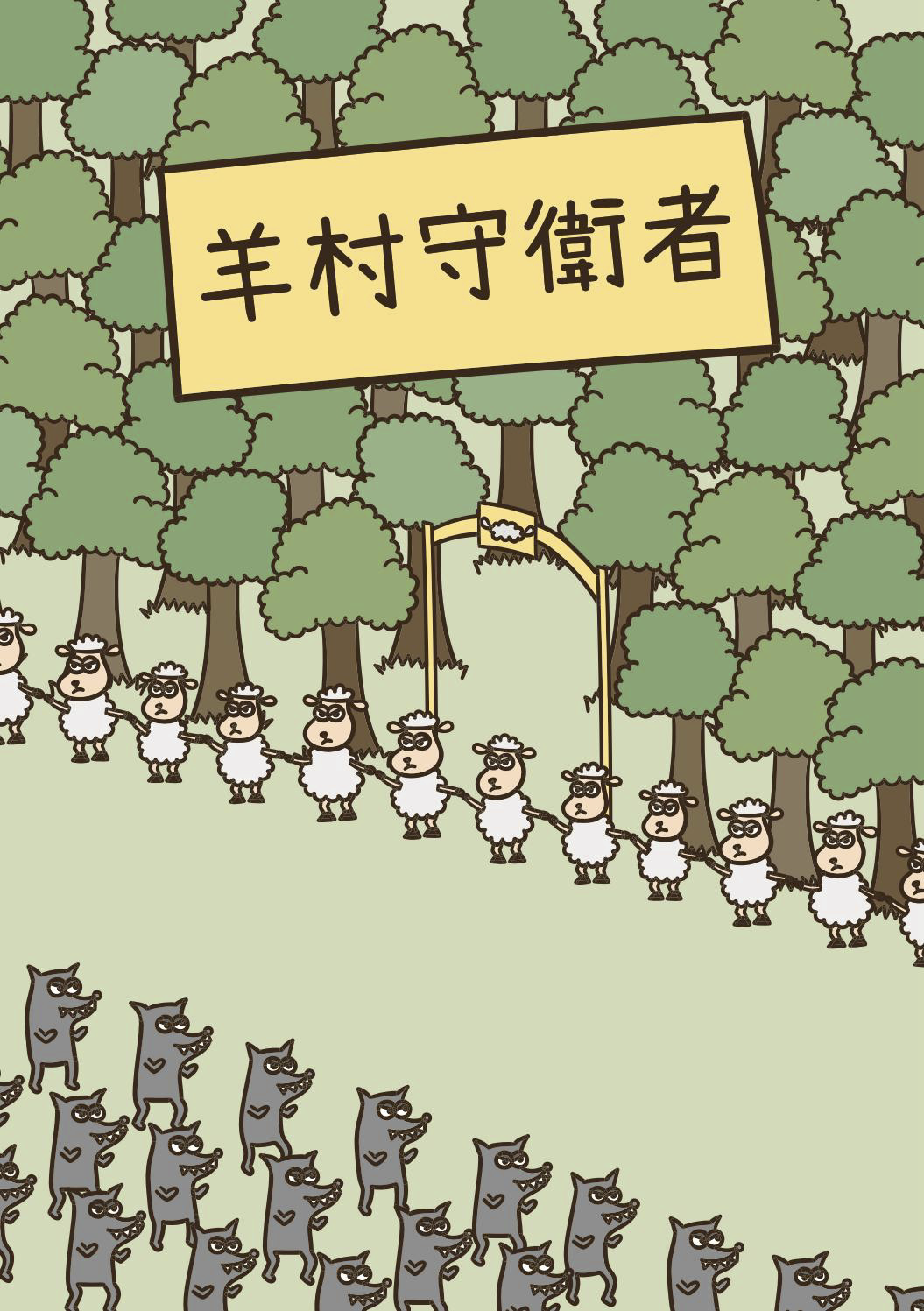Explore the collection
Showing 187 items in the collection
187 items
Film and Video
Xu Zhiyong
Chinese human rights activist Dr. Xu Zhiyong, twice imprisoned for his longstanding advocacy of civil society in China, was sentenced to 14 years in prison by the Chinese government in April 2023. The documentary by independent director Lao Hu Miao was filmed over a four-year period, beginning with the seizure of the Public League Legal Research Center, which Xu Zhiyong helped found in 2009, and ending with Xu's first prison sentence in 2014.
Book
Yangtze Yangtze
In March 1989, the book Yangtze Yangtze was published by the Guizhou People's Publishing House just as the Tiananmen student protests were about to begin in Beijing. The book fed into this intellectual ferment, challenging the technocratic reasons for the Three Gorges Dam, which eventually would dam the Yangtze River in the name of flood control and electrical power generation.
The book was edited by the journalist Dai Qing, the daughter of a well-known Communist Party activist and leader. The book challenged the project's decision-making process, with a broad array of scientists, journalists, and intellectuals arguing that it was not democratic and did not take into account all viewpoints. It was widely read in China and translated into foreign languages.
After the Tiananmen protests were violently suppressed, Dai Qing was arrested and imprisoned for ten months in Qincheng Prison as an organizer of the uprising. Yangtze Yangtze was criticized as “promoting bourgeois liberalization, opposing the Four Fundamental Principles (of party control), and creating public opinion for turmoil and riots.” The book was taken off the shelves and destroyed, with some copies burned. It became the first banned book resulting from the decision-making process of the Three Gorges Project.
The book is banned in China. The English-language edition can be read online at Probe International: https://journal.probeinternational.org/three-gorges-probe/yangtze-yangtze/.
Book
Zhao Ziyang’s Conversations Under House Arrest
In January 2007, Hong Kong Open Press published the book "Conversations of Zhao Ziyang under House Arrest". It was narrated by Zong Fengming and prefaced by Li Rui and Bao Tong. The narrator, Zong Fengming, is an old comrade of Zhao Ziyang. He retired from Beijing University of Aeronautics and Astronautics in 1990. From July 10, 1991 to October 24, 2004, using the name of a qigong master, Zong Fengming visited Fuqiang, who was under house arrest in Beijing. Zhao Ziyang, who lives at No. 6 Hutong, had hundreds of confidential conversations with Zhao Ziyang. This book is a rich account of these intimate conversations. Zhao Ziyang talked about the power struggle and policy differences within the top leadership of the CCP, his relationship with Hu Yaobang, his evaluation of Mao Zedong and Deng Xiaoping, his criticism of Jiang Zemin and Hu Jintao, Sino-US relations, the Soviet Union issue and Taiwan issues. He also conducted in-depth reflections on the history of the Communist Party.
Book
Zhu Xueqin Anthology
A collection of essays by Zhu Xueqin, a Chinese liberal intellectual. He has faced and criticizes various problems in China from a liberal point of view. Most of Zhu Xueqin's books were later banned.
图书
An Eyewitness Account of 1989 by a PLA Soldier
<i>An Eyewitness Account of 1989 by a PLA Soldier</i> is written by Cai Zheng. In 1989, Cai Zheng was serving in the People's Liberation Army Air Force in Beijing. On June 5th, near Tiananmen Square, he was arrested and severely beaten by martial law troops after he protested against the massacre. He was then detained for over eight months at the Beijing Xicheng Public Security Bureau and by his own military unit, enduring torture. Afterward, he was sent back to his hometown of Hong'an in Hubei province.
The book offers a detailed account of Cai Zheng's experiences as a soldier during the June Fourth crackdown and his subsequent struggles for survival in his hometown. It provides valuable insights for researchers seeking to understand China's social and historical environment before and after the events in 1989.
Published in 2009 by Mirror Books, this memoir is held in various public libraries in Hong Kong and by many university libraries worldwide. The book has also been subject to pirated editions within China.
图书
Summer of 1989: We Were in Beijing
<i>Summer of 1989: We Were in Beijing...</i> compiles numerous firsthand accounts detailing the experiences of students from The Chinese University of Hong Kong (CUHK) who were in Beijing and Shanghai during the 1989 democracy movement. A total of thirty CUHK students traveled from Hong Kong to Beijing to show their support.
The Hong Kong students interacted with student movement leaders at the time, attended meetings of the Beijing Students Autonomous Federation, participated in organizing efforts, and even edited a publication called <i>News Express</i>. They also set up a supply station of provisions in Tiananmen Square and supported the establishment of "Tiananmen Democracy University." A number of these students personally witnessed the June Fourth crackdown.
On the eve of the crackdown, official broadcasts in the square sternly criticized students from “a certain Hong Kong university” for forming illegal organizations. <i>People's Daily</i> directly named and criticized the Chinese University of Hong Kong Student Union on June 15th, after the crackdown occurred.
The Chinese University of Hong Kong Student Union published this book in 2014, stating its purpose as safeguarding history and combating official brainwashing. It also hopes that readers will understand the Tiananmen democracy movement from the perspective of Hong Kong students and to explore the role of CUHK and Hong Kong academia in this movement.
Book
Major Feminist Events in China 2020-2023
This is a record and index of major feminist events in China between 2020 and 2023. The document consists of more than 2,000 pages, in which 122 topics/events related to feminism have been curated. The document is divided into five chapters: “Feminism in the Public Eye ”, “Feminism in Individual Cases”, “Feminism in the Law”, “Feminist Activism,” and “Three Special Years - Feminism amid COVID-19”.
Each event entry is divided into two parts: event summary and related articles The first part aims to provide a complete and objective overview of the event, using first-hand materials when possible; the second part collects media reports and commentaries on the event published through public media outlets and social media platforms.
This document covers a wide range of topics/events, including but not limited to commercial surrogacy, gender discrimination in higher education, China’s population policy and the reproductive rights of women, misogynistic culture in the media, the progress and challenges of the #Metoo movement, legal analysis of law and policies concerning feminist issues, and feminist activism.
The editorial group introduced their intention as follows in the document’s introduction:
“This document, though imperfect, is an attempt to contribute to the writing of the history of Chinese feminism - history is the road we are walking at the moment, and we've come a long way, still searching for answers hidden in the thick fog. ”
“We hope that this document will not only serve as a tool, but also provide the reader with wisdom and strength.”
图书
#MeToo in China Archives 2018.1-2019.7
On New Year's Day 2018, Beihang University graduate Luo Xixi took the lead in breaking China's silence on the issue of sexual harassment when she publicly reported on social media that Beihang professor Chen Xiaowu had sexually harassed her. This was the first major event in China’s #Metoo movement, which has since spread from colleges and universities to other fields. #Metoo provoked an unprecedented discussion in China, and the issues of feminism and sexual harassment attracted a rare and widespread attention, with a variety of complaints, comments, studies, and advocacy articles springing up all over the internet.
<i>#MeToo in China Archives 2018.1-2019.7</i> is a compilation of sexual harassment-related articles written between January 2018 and July 2019. This archive is massive, totaling more than 2,500 pages, and is divided into three main volumes: “#Metoo in Higher Education”, “#Metoo in other fields”, and “#Metoo discussions’. Volume I and Volume II consist of individual #Metoo cases, arranged in chronological order. Articles in volume 3 can be broadly categorized into general reviews, investigative reports, personal stories, advocacy and activism, tools and resources,etc. During the #Metoo movement, many liberal public intellectuals questioned the movement, likening it to big-character posters during the Hundred Flowers campaign, and arguing that it might lead to the proliferation of wrongful convictions. It triggered heated debates, and this archive also contains a number of related articles.
The process of compiling this archive itself became an act of resistance, given the severe repression on freedom of expression and social movements. The editorial team faced tremendous challenges in collecting articles that had been deleted or published as images to bypass online censorship. It spent a great deal of time and personnel piecing together scraps of information and transcribing words in images. Reading traumatic personal stories - including those about the hardships in seeking remedies - caused psychological trauma for the editors themselves.
Nevertheless, #Metoo has also a process of collective healing, in which women with shared experiences saw each other, realized the structural problems behind sexual violence, and gained the strength to move on and push for change. Finally, during the compilation process, the editorial team also benefited from archiving efforts made by other websites and individuals, demonstrating that the rescue and preservation of people’s history is a collective and collaborative task.
This archive is published on https://chinesefeminism.org/.
Article
A Brief History of Young Feminists Activism in China
Since 2012, a group known as the “Young Feminist Activists”, has emerged in China. They often use performance art in public to promote gender equality issues; they question injustice, and engage in policy advocacy to advance women’s rights. They make use of social media and the internet to provoke public debate, build public support, and mount pressure for social and self-transformation in China. Their direct actions created new space for activism in China's tightening political environment.
This article provides a detailed overview of the actions initiated by the young feminist activists between 2012 and 2019. These actions cover a wide range of gender issues, including but not limited to sexual assault/harassment, gender-based violence, gender equality in employment and schooling, gender stigma and stereotyping, marriage autonomy, and lesbian rights and interests. These actions have not only raised the public's awareness of gender equality, but also promoted the introduction of gender equality legislation and policies.
A turning point came In 2015 when five young feminist activists were arrested and detained for 37 days for planning to hold an anti-sexual harassment campaign on March 8, Interantional Women's Day. Since then, young feminist activists have almost completely lost their space on the streets. However, as can be seen from this article, feminist activism did not disappear, but sustained and continued in a variety of ways, including the creative use of social media and leveraging transnational solidarity and action.
In the article, the author says, “Young feminist activists should not be forgotten by the public, especially in an environment where censorship has intensified in the past years, civil society has nearly collapsed, and it is extremely difficult for people to speak out. While there is a seeming increase in discussion of feminism in domestic social media, it has been severely depoliticized, feminist activists are marginalized and stigmatized, and their voices silenced. Therefore, it is particularly important to tell the stories of young feminist activists and popularize knowledge about the domestic feminist movement. It is important to let more people see the spirit and achievements of the new generation of Chinese feminists, and understand the important gender issues they have promoted.”
The article is accompanied by numerous images, videos and links to other resources for further reading.
电影及视频
Global Feminisms Project: China Interviews
The Global Feminisms Project, hosted by the University of Michigan, archives oral history interviews with individuals who identify themselves as working on behalf of issues related to women and gender in different national contexts. The goal of the project is to encourage teachers and researchers to study issues related to the many forms of feminist or women’s movement activism in general, as well as activism on behalf of particular issues.
Beyond that, this project is also a useful resource for general readers who are interested in learning more about the history of feminist movements around the world. Interviewees describe their lives, their views, and their activism in considerable detail. The project offers the unedited interviews as primary sources for understanding the history of activism in all its complexity and variation.
The project covers 14 countries, including China, with each having a dedicated site. According to introductions by Wang Zheng, then a professor at University of Michigan’s Institute for Research on Women and Gender, the China Interviews took place in two phases.
In the first, the interviews illustrate the multi-dimensional development of feminist practices in China’s transformation from a socialist state economy to a capitalist market economy from the mid-1980s, when spontaneous women’s activism emerged. Situating such development in the context of both global capitalism and global feminisms, especially in the context of the Fourth UN Conference on Women (FWCW) when Chinese feminists came into direct contact with global feminisms, the interviews, conducted in the early 2000s, explore the cultural, social, and political meanings of Chinese feminist practices. They illustrate how official, non-official, domestic, and overseas Chinese women activists expressed diverse visions of gender equality, even engaging in struggles over the very word “gender.”
These interviews reflect the scope and complexity of the contemporary Chinese women’s movement. Feminist activists include women leaders from diverse groups, such as Ge Youli, who was involved as a young leader in various urban based organizational activities funded by international donors to disseminate feminist ideas; Zhang Lixi, Vice President of the Chinese Women’s College that affiliates with the All-China Women’s Federation, who has promoted women’s studies in her college; Ai Xiaoming, prominent feminist scholar and activist; and Gao Xiaoxian, who holds an official position in the Shaanxi Women’s Federation while creating several women’s organizations outside the official system to engage in legal services for women, anti-domestic violence movements, and issues of gender and development.
In the second phase, five interviews of a younger cohort of Chinese feminists record the rapidly contracted public space for NGO activism in China since the second decade following the FWCW and severe surveillance by the state over feminist activities initiated by autonomous feminist groups and individuals. They also provide powerful testimonies to tremendous creativity, perseverance and courage demonstrated by young feminists who in many cases are making a precarious living in the private sector without much resource for their feminist activism.
<a href=”https://sites.lsa.umich.edu/globalfeminisms/interviews/china/”>The China site</a> provides videos and transcripts of the interviews (both in Chinese and English). In addition to the interviews, the archive also provides maps, statistics, a timeline, podcasts and other resources to assist understanding of the context in which the activists carried out their work.
Film and Video
Beijing's Petition Village
In China, individuals can complain to higher authorities about corrupt government processes or officials through the petition system. The form of extrajudicial action, also known as "Letters and Visits" (from the Chinese xinfang and shangfang), dates back to the imperial era. If people believe that a judicial case was concluded not in accordance with law or that local government officials illegally violated his rights, they can bring it to authorities in a more elevated level of government for hearing, re-decide it and punish the lower level authorities. Every level and office in the Chinese government has a bureau of “Letters and Visits.” What sets China’s petitioning system apart is that it is a formal procedure—and as Zhao Liang's documentary shows, the system is largely a failure.
A residential area near Beijing South Railway Station was once home to tens of thousands of residents from all over the country. Known as “Petition Village,” its bungalows and shacks were demolished by authorities several times, but many petitioners still clung to the land in search of a clear future. _Beijing Petition Village_ portrays the village in the midst of this upheaval, focusing on the thousands of civilians who travel from the provinces to lodge their complaints in person with the highest petitioning body, the State Bureau of Letters and Visits Calls in the province, only to repeatedly get the brush-off by state officials. Ultimately, in 2007, Petition Village was demolished for good.
The film went on to win the Halekulani Golden Orchid Award for Best Documentary Film at the 29th Hawaii International Film Festival, and a Humanitarian Award for Documentaries at the 34th Hong Kong Film Awards.
Film and Video
Ten Years
<i>Ten Years</i> is a 2015 Hong Kong film composed of five short-film segments directed by Kwok Zune ("Extras"), Wong Fei-Pang ("Season of the End"), Jevons Au ("Dialect"), Kiwi Chow ("Self-Immolator"), and Ng Ka-Leung ("Local Egg"), starring Liu Kai-chi, Leung Kin-Ping, Catherine Chau, Neo Yau, and Ng Siu Hin.
<i>Ten Years</i> has been hailed as Hong Kong's prophecy because of the film's depiction of the decline of human rights, democracy, and freedom of speech in Hong Kong. The Chinese government has censored the film, ordering major online platforms in Mainland China to prohibit live broadcasting and rebroadcasting of the Golden Horse Awards and the Hong Kong Film Awards ceremonies in 2016. <i>Ten Years</i> won Best Film at the 35th Hong Kong Film Awards.
图书
A Chronicle of Heroes in Quelling the Turmoil
<i>A Chronicle of Heroes in Quelling the Turmoil—A Collection of Reports on the Deeds of Heroes and Models in Suppressing the Counter-Revolutionary Rebellion in Beijing</i> was published by Guangming Daily Publishing House in September 1989. As one of the Chinese Communist Party's official propaganda projects after the suppression of June Fourth, this book collected speeches from a nationwide speaking tour organized by the authorities after the suppression to publicize the "great achievements in quelling the counter-revolutionary rebellion." It is one of the texts for studying June Fourth from the official perspective.
Film and Video
Zhang Zhan Video Series of COVID-19 Outbreak in Wuhan
On 23 January 2020, the Chinese government imposed a lockdown in Wuhan. On February 1, Zhang Zhan took a train from Shanghai to Wuhan. From then until her arrest by the Shanghai police on May 14, Zhang Zhan continued to document the situation in Wuhan on video at the frontline of the pandemic. On February 7, she launched a YouTube channel under her real name and released her first video, “Claiming the Right to Freedom of Expression,” in memory of Dr. Li Wenliang and in solidarity with citizen journalists Chen Qiusi and Fang Bin, who had been taken away for reporting on COVID-19. She said in the video: “If Chinese citizens still do not have the right to freedom of expression,then we are all Li Wenliang." On the same day, Zhang Zhan received a phone call from Shanghai's state security agency threatening to quarantine her if she continued to speak out online, but she did not give in. By the time she was arrested, Zhang Zhan had posted 122 videos on <a href=”https://www.youtube.com/@%E5%BC%A0%E5%B1%95-y3p/featured”>her YouTube channel</a>. In her videos, she traveled around Wuhan at the height of COVID-19, documenting empty streets, the roar of funeral home incinerators late at night, the desperation of patients with no place to turn for medical care, the arbitrary deprivation of residents’ freedom of movement, and the chaotic and hypocritical nature of government policies. These videos show the world the reality of Wuhan in the early days of the outbreak, making thema precious historical record.
图书
One Day Under Martial Law
<i>One Day Under Martial Law</i> was edited by the Cultural Department of the General Political Department of the Chinese People's Liberation Army (PLA), and published and distributed by the PLA Literature and Art Publishing House in October 1989.
The book is divided into two volumes and collects a total of 190 signed articles. Apart from a few police officers from the Beijing Municipal Public Security Bureau at the time, almost all the authors were soldiers from the PLA martial law troops.
This book is a valuable resource provided by the martial law troops, a special group of witnesses to the June Fourth Tiananmen Incident. The book is a valuable source of information for researchers seeking information on the troops that participated in the June 4th massacre.
This book was also a primary reference for scholar Wu Renhua when he wrote the book <i>The Martial Law Troops in the June Fourth Incident</i>. As an officially organized piece of propaganda material, the book's original intent was to applaud the troops and individual officers and soldiers for what the government described as "quelling the counter-revolutionary rebellion." However, because it revealed too much true information, the book was banned shortly after publication. In 1990, the publisher reissued what it called a "selected edition" of the book, which removed over a hundred articles, retaining only 80 signed articles, and the total word count of the book was reduced by more than half. The Archives has collected the original two volumes of <i>One Day Under Martial Law</i>, as well as the “selected edition" that was published after being censored.
图书
The True Face of Fang Lizhi
<i>The True Face of Fang Lizhi</i> was edited by the General Office of the Central Commission for Discipline Inspection of the Communist Party of China and published by Law Press in July 1989.
Fang Lizhi was one of Beijing's most prominent intellectuals during the 1989 Tiananmen Square Democracy Movement. An astrophysicist, he was labeled a "rightist" in his earlier years. Starting in the autumn of 1988, he actively participated in political study groups at Beijing's universities and gave interviews to foreign media, openly criticizing the Chinese Communist Party's Four Cardinal Principles, which called for upholding socialism and the Communist Party rule. His views resonated with students in Beijing at the time.
On January 6, 1989, he penned an open letter to then-Central Military Commission Chairman Deng Xiaoping, suggesting that democracy activists like Wei Jingsheng be released that year for the National Day celebrations. In February 1989, Fang Lizhi wrote "China's Hope and Disappointment," which Wang Dan and others posted as a big-character poster at Peking University. In June 1989, the CCP authorities issued an arrest warrant for Fang Lizhi on charges of "counter-revolutionary propaganda and incitement." Fang subsequently sought refuge in the U.S. Embassy and later sought exile in the United States.
This book serves as a propaganda tool for the Chinese Communist Party, compiling Fang Lizhi's what the book called "reactionary statements" where he "opposed the Four Cardinal Principles and advocated bourgeois liberalization." It also gathers articles from Chinese Communist Party newspapers that criticize Fang Lizhi for "inciting and organizing the June Fourth riots." From an official government perspective, the book offers insights into Fang Lizhi's ideas and sheds light on China's social and political thought environment before and after June Fourth.
Book
The Falun Gong Phenomenon
This book is a collection of several long articles and commentaries by Hu Ping on Falun Gong and the persecution and repression against Falun Gong practitioners. From an independent perspective, this book responds to a series of unfair criticisms and stigmatization of Falun Gong by the Chinese authorities and the public, calling on society to fight for the basic rights of Falun Gong practitioners who have been persecuted.
Periodicals
NEWS STAND
NEWS STAND is a special issue of Hong Kong’s Stand News. Featuring selections of reporting and photography on Hong Kong's 2019 social movement, NEWS STAND presents readers with a first-hand account of Hong Kong’s history.
Established on December 30, 2014, Stand News ceased operations on December 29, 2021, after Hong Kong’s National Security Police raided the publication’s headquarters.
The Hong Kong Police charged Stand News, along with its top editors and board members, with “conspiracy to publish seditious publications” under sections 9 and 10 of the Crimes Ordinance for publishing a number of seditious articles. The preface of NEWS STAND was also used by the prosecution as evidence in court.
On December 30, 2021, former Editor-in-Chief Chung Pui-kuen and former Acting Editor-in-Chief Patrick Lam Shiu-tung were refused bail and remanded in custody.
The trial against Stand News began in October 2022 and lasted 57 days, with the verdict adjourned three times, resulting in a judgment on August 29, 2024, a span of 33 months from indictment to verdict.
Judge Kwok Wai-kin found Chung, Lam, and Stand News’ parent company guilty of criminal intent, finding that the political philosophy of Stand News was nativist and that it was “intended to incite hatred of the Chinese central government or the Hong Kong government and hatred of the judiciary.” Of the 17 articles presented by the prosecution, 11 were found by the judge to have inciting intent; Chung and Lam were respectively sentenced to 21 months and 11 months in prison.
Book
The Twelve Warriors of Sheep Village (Cantonese and English Versions)
<i>The Twelve Warriors of Sheep Village</i> is a children’s book in the <i>Sheep Village</i> series. This book describes the incident in 2020 where twelve Hong Kong youths fled the city by boat but were intercepted by Chinese authorities and found guilty in Mainland Chinese courts.
The <i>Sheep Village</i> Series Children’s Picture Books
The <i>Sheep Village</i> series is a group of six children's books published by the General Union of Hong Kong Speech Therapists. The six books are titled <i>The Guardians of Sheep Village</i>, <i>The Twelve Warriors of Sheep Village</i>, <i>The Street Cleaners of Sheep Village</i>, <i>Voting Day in Sheep Village</i>, <i>Sheep Village Daily</i>, and <i>The Architects of Sheep Village</i>.
<i/>The Guardians of Sheep Village</i>, <i>The Twelve Warriors of Sheep Village</i>, and <i>The Street Cleaners of Sheep Village</i> were published in Hong Kong between 2020 and 2021, while the other three were not formally published and were mainly distributed on the Internet.
On July 22, 2021, the national security unit of the Hong Kong Police arrested five board members of the Hong Kong General Union of Speech Therapists, including its president Lai Man Ling and its external vice president Yeung Yat Yee Melody, as well as the union's three other board members, Ng Hau Yi Sydney, Chan Yuen Sum Samuel, and Fong Tsz Ho, on the charge of conspiracy to print, publish, distribute, display and/or reproduce seditious publications. The five defendants were denied bail and remanded in custody for nearly a year before trial. On September 10, 2022, Judge Kwok Wai-kin sentenced the five defendants to 19 months in prison.
The <i>Sheep Village</i> case was the first case involving the charge of conspiracy to print, publish, distribute, display and/or reproduce seditious publications since Hong Kong’s handover in 1997.
图书
The Guardians of Sheep Village (Cantonese and English Versions)
<i>The Guardians of Sheep Village</i> is a children’s book in the <i>Sheep Village</i> series. This book outlines Hong Kong’s 2019 social movement and the relationship between Hong Kong and Mainland China by describing Hong Kong as a sheep village and Mainland China as a wolf village.
The <i>Sheep Village</i> Series Children’s Picture Books
The <i>Sheep Village</i> series is a group of six children's books published by the General Union of Hong Kong Speech Therapists. The six books are titled <i>The Guardians of Sheep Village</i>, <i>The Twelve Warriors of Sheep Village</i>, <i>The Street Cleaners of Sheep Village</i>, <i>Voting Day in Sheep Village</i>, <i>Sheep Village Daily</i>, and <i>The Architects of Sheep Village</i>.
<i/>The Guardians of Sheep Village</i>, <i>The Twelve Warriors of Sheep Village</i>, and <i>The Street Cleaners of Sheep Village</i> were published in Hong Kong between 2020 and 2021, while the other three were not formally published and were mainly distributed on the Internet.
On July 22, 2021, the national security unit of the Hong Kong Police arrested five board members of the Hong Kong General Union of Speech Therapists, including its president Lai Man Ling and its external vice president Yeung Yat Yee Melody, as well as the union's three other board members, Ng Hau Yi Sydney, Chan Yuen Sum Samuel, and Fong Tsz Ho, on the charge of conspiracy to print, publish, distribute, display and/or reproduce seditious publications. The five defendants were denied bail and remanded in custody for nearly a year before trial. On September 10, 2022, Judge Kwok Wai-kin sentenced the five defendants to 19 months in prison.
The <i>Sheep Village</i> case was the first case involving the charge of conspiracy to print, publish, distribute, display and/or reproduce seditious publications since Hong Kong’s handover in 1997.




